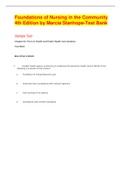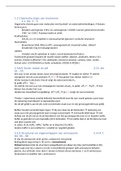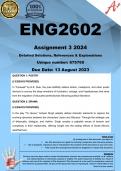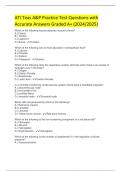Week 1
Bennett, W. L. (2016). News: The politics of illusion. University of Chicago Press
News in a changing information system
- News:
“important information delivered in timely fashion to people who want to know it”
- Critics worry that the quality of reporting is deteriorating, which contributes to the
number of people who have stopped following news produced by conventional
journalism organizations (From Daily Us to Daily Me)
- More people use Facebook as news source. Most Facebook stories are
entertainment related.
- The decline of traditional news is based on investigations by journalists and
distributed by news organizations as what citizens need to know about their world.
The advertising dollars that once supported local news media are flowing to digital platforms such as Google that
target consumers in more refined and personalized ways
- Change from a one-to-many communication logic to a many-to-many logic that
involves people more interactively in the communication process. Redefining “the
audience”.
- “Do the media provide us with the kinds of information that helps individual and
collective decision-making? Do media provide us with enough of this information? Do
we trust the information provided by the media?”
Why journalism matters
- Many outlets for information are recycling news, which is shrinking journalism
content. This may lead to corruption (political)
- Watchdog journalism: putting up paywalls may help.
- The real problem is that as long as there are free news outlets, those charging
money for the same information will not likely attract many paying costumers
- A strong case can be made that independent journalism is the only hope or regular
and reliable information about what those in power are doing
Can the news be fixed
- According to Thomas Patterson, the answer is for journalism organizations is to
return to their core values of informing the public with timely and accurate information
about government and public life
- Even when journalists try to cover important issues, they often get caught in tedious
battles between politicians that shift the focus from the underlying issues to power
struggles
- Controversy and fight are good for drawing audiences
- Until fairly recently, the ethics of professional journalism maintained something of a
“firewall” between the journalism and the advertising sides of the business, with the
result that advertisers had minimal direct control over what the news side did
- Online news sites are able to personalize news more than traditional media
- In many cases it is hard to distinguish reporters from regular people because of
modern media used (youtube, facebook, texts): no more interest in traditional media
(newspapers, set time news reports on tv)
1
,Citizen gap: Who follows the news?
- The more people consume new media, the less they consume traditional news
media. This often means spending less time per story, and following a broad scope of
events
- Younger citizens seem to go less in-depth than older citizens
- People assume that younger people will consume more traditional media as they
grow up but evidence does not support this
- After 1970, generations became less informed and less likely to follow political
issues/events.
This may be due to increasing self-selected exposure to news
- Recent research suggests that younger citizens are getting information about issues
that matter to them seem to be good news
- It is hard to pin down which came first: fragmentation of the public or fragmentation of
the media.
- It is now harder for various media to find and keep their audiences: As audience
become harder to reach, more polarized and selectively informed, what is the role of
news in creating the link between citizens and officials is so important to governing in
a democracy?
Governing with the news
- Politicians and journalists have become inseparable as governing the news
- Politicians need to get their position into the news to establish themselves as
movers and shakers in the image game to retain relevance and traction
- Journalists receive a fresh and economical daily supply of news, along with
insider status and professional respect when they land big interviews and
inside scoops
- despite the often fierce competition for these inside tidbits, the overall results display
relatively little variation in stories across the mainstream media
- news is similar day to day, featuring the same events, persons but also in morals and
stories it tells
- the ability/inability of officials to make and control the news is reflected in the
capacity of news to (= functions of news)
1. shape the public opinion among citizens still paying attention
2. sway different political factions to join or oppose political initiatives
3. hold officials more or less accountable for those initiatives
4. simply inform citizens about what the government is doing
Politicians and the media: a symbiotic relationship
- power and influence seem to depend on the control and strategic use of information
- agenda setting
- using the news to influence what the public regards as important for them to
think about society and politics
- mediated politics being well informed about the issue on the public agenda often
means taking cues from familiar sources using the news to frame stories around their
partisan viewpoints
- when framing works it can not only tell people what to think about, but also what to
think
2
, - news that resembles entertainment is deemed “infotainment”. Those in politics
usually seem more unreachable and less sympathetic than those in reality
programmes etc
- there is a mutually dependent relationship between news and politicians through
which politicians spin the press
Getting Spun: indexing the news to political power
- what should journalists do in case officials say things that are inconsistent with
available evidence?
- Should both sides of a story be covered if one is most likely not true?
- Indexing
- = The tendency of mainstream news organizations to index or adjust the
range of viewpoints in a story to the dominant positions of those whom
journalists perceive to have enough power to affect the outcome of a situation
- If journalists want to stay/appear objective and balanced, they cannot become
involved in telling the audience what is really going on. They must channel images of
reality through external sources
- Sometimes those in power have reasons to confuse or distort issues: own value
biases, saying what they must do to attract financial support
- If certain powerful instances present bad ideas they will be presented as equally valid
alongside more plausible versions of events
- Confusions of reality and power may undermine the credibility of news for many
citizens
Case study
- Thrutiness
- political statements that officials introduce into the news that are not entirely
consistent with available evidence.
- = The appearance of truth while important evidence is left out
- There is implicit recognition that in journalistic thrutiness, that what powerful figures
say in the news can only be challenged effectively by a source of comparable power
or status
- Political comedy has become a trusted news source. (Satire)
What about the people?
- Media logic is hard to break out of. This media logic produces a democracy without
citizens
- To combat this many different information strategies are used
- As mass media fragment into smaller niche channels. News is frequently marketed to
the lifestyles and political values of different audience segments
A definition of news
- Bimber: American politics is biased towards those with the best command of political
information
- As the mass media regime erodes, many observers worry that multiplying media
niches may produce individuals who become informed just about issues that suit their
personal lifestyles/beliefs
3
Bennett, W. L. (2016). News: The politics of illusion. University of Chicago Press
News in a changing information system
- News:
“important information delivered in timely fashion to people who want to know it”
- Critics worry that the quality of reporting is deteriorating, which contributes to the
number of people who have stopped following news produced by conventional
journalism organizations (From Daily Us to Daily Me)
- More people use Facebook as news source. Most Facebook stories are
entertainment related.
- The decline of traditional news is based on investigations by journalists and
distributed by news organizations as what citizens need to know about their world.
The advertising dollars that once supported local news media are flowing to digital platforms such as Google that
target consumers in more refined and personalized ways
- Change from a one-to-many communication logic to a many-to-many logic that
involves people more interactively in the communication process. Redefining “the
audience”.
- “Do the media provide us with the kinds of information that helps individual and
collective decision-making? Do media provide us with enough of this information? Do
we trust the information provided by the media?”
Why journalism matters
- Many outlets for information are recycling news, which is shrinking journalism
content. This may lead to corruption (political)
- Watchdog journalism: putting up paywalls may help.
- The real problem is that as long as there are free news outlets, those charging
money for the same information will not likely attract many paying costumers
- A strong case can be made that independent journalism is the only hope or regular
and reliable information about what those in power are doing
Can the news be fixed
- According to Thomas Patterson, the answer is for journalism organizations is to
return to their core values of informing the public with timely and accurate information
about government and public life
- Even when journalists try to cover important issues, they often get caught in tedious
battles between politicians that shift the focus from the underlying issues to power
struggles
- Controversy and fight are good for drawing audiences
- Until fairly recently, the ethics of professional journalism maintained something of a
“firewall” between the journalism and the advertising sides of the business, with the
result that advertisers had minimal direct control over what the news side did
- Online news sites are able to personalize news more than traditional media
- In many cases it is hard to distinguish reporters from regular people because of
modern media used (youtube, facebook, texts): no more interest in traditional media
(newspapers, set time news reports on tv)
1
,Citizen gap: Who follows the news?
- The more people consume new media, the less they consume traditional news
media. This often means spending less time per story, and following a broad scope of
events
- Younger citizens seem to go less in-depth than older citizens
- People assume that younger people will consume more traditional media as they
grow up but evidence does not support this
- After 1970, generations became less informed and less likely to follow political
issues/events.
This may be due to increasing self-selected exposure to news
- Recent research suggests that younger citizens are getting information about issues
that matter to them seem to be good news
- It is hard to pin down which came first: fragmentation of the public or fragmentation of
the media.
- It is now harder for various media to find and keep their audiences: As audience
become harder to reach, more polarized and selectively informed, what is the role of
news in creating the link between citizens and officials is so important to governing in
a democracy?
Governing with the news
- Politicians and journalists have become inseparable as governing the news
- Politicians need to get their position into the news to establish themselves as
movers and shakers in the image game to retain relevance and traction
- Journalists receive a fresh and economical daily supply of news, along with
insider status and professional respect when they land big interviews and
inside scoops
- despite the often fierce competition for these inside tidbits, the overall results display
relatively little variation in stories across the mainstream media
- news is similar day to day, featuring the same events, persons but also in morals and
stories it tells
- the ability/inability of officials to make and control the news is reflected in the
capacity of news to (= functions of news)
1. shape the public opinion among citizens still paying attention
2. sway different political factions to join or oppose political initiatives
3. hold officials more or less accountable for those initiatives
4. simply inform citizens about what the government is doing
Politicians and the media: a symbiotic relationship
- power and influence seem to depend on the control and strategic use of information
- agenda setting
- using the news to influence what the public regards as important for them to
think about society and politics
- mediated politics being well informed about the issue on the public agenda often
means taking cues from familiar sources using the news to frame stories around their
partisan viewpoints
- when framing works it can not only tell people what to think about, but also what to
think
2
, - news that resembles entertainment is deemed “infotainment”. Those in politics
usually seem more unreachable and less sympathetic than those in reality
programmes etc
- there is a mutually dependent relationship between news and politicians through
which politicians spin the press
Getting Spun: indexing the news to political power
- what should journalists do in case officials say things that are inconsistent with
available evidence?
- Should both sides of a story be covered if one is most likely not true?
- Indexing
- = The tendency of mainstream news organizations to index or adjust the
range of viewpoints in a story to the dominant positions of those whom
journalists perceive to have enough power to affect the outcome of a situation
- If journalists want to stay/appear objective and balanced, they cannot become
involved in telling the audience what is really going on. They must channel images of
reality through external sources
- Sometimes those in power have reasons to confuse or distort issues: own value
biases, saying what they must do to attract financial support
- If certain powerful instances present bad ideas they will be presented as equally valid
alongside more plausible versions of events
- Confusions of reality and power may undermine the credibility of news for many
citizens
Case study
- Thrutiness
- political statements that officials introduce into the news that are not entirely
consistent with available evidence.
- = The appearance of truth while important evidence is left out
- There is implicit recognition that in journalistic thrutiness, that what powerful figures
say in the news can only be challenged effectively by a source of comparable power
or status
- Political comedy has become a trusted news source. (Satire)
What about the people?
- Media logic is hard to break out of. This media logic produces a democracy without
citizens
- To combat this many different information strategies are used
- As mass media fragment into smaller niche channels. News is frequently marketed to
the lifestyles and political values of different audience segments
A definition of news
- Bimber: American politics is biased towards those with the best command of political
information
- As the mass media regime erodes, many observers worry that multiplying media
niches may produce individuals who become informed just about issues that suit their
personal lifestyles/beliefs
3











